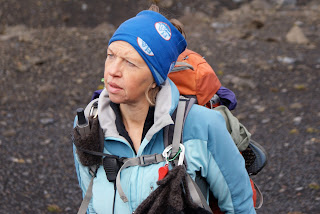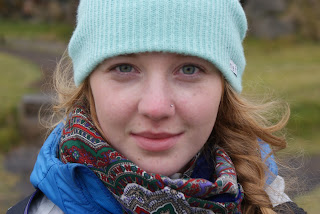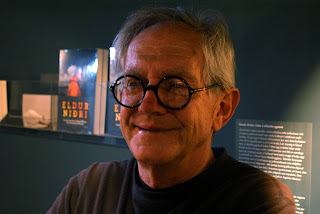Many things change in life. One thing that doesn't, however, is the
passage of time. Time moves steadily onward, day following day
following day. Whenever one starts something new, it feels like it
will last forever... but every time, it eventually ends.
I write this to you from the end of the most significant semester of
my life. I write this to you because your life, like mine, is finite.
I write this to you because no matter who you are or what your
situation is, you have things that you need to contribute to the
world and things that you need to experience.
As people in a mostly materialism-driven global society, what are we
going to do with the unknown amount of finite time that we have left
in our lives? Will we follow the culturally approved path for a human
being, the standard K-12 to college to graduate school to career to
retirement to death model, perhaps with a few spouses or children
thrown in for good measure? The lifespan of a person is now nearly as
predictable as the lifespan of a similar disposable product, like a
paper cup.
I am not, of course, saying that any of those things are bad.
Careers, spouses, education, and children are all potential
ingredients for a happy, satisfying life.
I
am, however, saying that we should start thinking
about what we really want out of life. Too often, the standard life
path brings with it a sense omnipresent anticipation with no real
resolution: we're always waiting for that one
thing
to happen so that we can finally be complete, finally be happy. We're
trying to get to the next grade level, to high school, to college, to
grad school, to our first real job, to a promotion, to a stable
career, to another promotion, to retirement. We're trying to find a
great spouse, trying to have kids, trying to get the kids out of the
house, trying to get our marriage back on track, trying to start a
new marriage.
We're
always waiting. We're always striving. And if we ever get to the
point where we can relax and say, “Okay. Now
I've done it. Now
I
can finally sit back and enjoy life”, it's in our twilight years.
So,
what I'm saying is simply this: it's time to become present. It's
time to realize that life, the very best part of it, is happening
now.
Whatever moment you're in, this is it. This is life. It's not waiting
around the next bend.
One of the best responses to this realization is simply to start
intentionally enjoying life more. Appreciate the beauty of the sky in
the morning. Turn off your TV and learn a new skill. Explore new
places. Spend time with your friends. Make new friends.
However,
there's a more urgent response to this realization, especially if
you're younger. Our planet is in trouble. Though
not many people realize it yet, we live in a time of great change.
One might compare it to having just pushed off from the top of a
giant water slide: you're not moving fast enough for it to be scary
yet, but you're about to be, and there's nothing that you can do to
stop it. Our world is hurtling into a period of societal,
environmental, and intellectual upheaval. This upheaval is driven by
the fact that our culture is based on the idea of endless
consumption; a consumption not matched by endless resources. In so
many ways – climate, water supply, food supply, mineral
exploitation, and others – we are pushing the limits of what is
possible with the resources that we have. Our global infrastructure
has been cracking, unnoticed, under the strain, and it is now
crashing to the ground.
Your heart is bump-bumping the rest of your life away. What are you
going to do with that life? Enjoy it, yes. But you also have a
responsibility. Whoever you are, you have a responsibility to use
some of your time to ease mankind's load on the planet. You have a
responsibility to help society transition into a period of deep
uncertainty.
If you're a potential CELL student, then the best possible way that
you could go about that is by signing up for this course. It will
teach you how to live in the moment as well as educate you about the
major issues going on across the globe. It will give you the skills,
both intellectual and practical, for you to enjoy life to the fullest
and make a real, significant change in the world.
For
everybody else, do some reading. Start with Eaarth
by Bill McKibben and Cradle
to Cradle by
Michael Braungart and William McDonough. Figure out ways to make your
own life more sustainable, and then spread your ideas outward to your
community. Be an active voice. You'll find that many of the things
that are good for the Earth are also good for your own health and
happiness. Building stronger, more connected communities is
synonymous with building more environmentally sustainable
communities. An amazing number of the world's problems can be solved
by taking a critical look at our lifestyles and changing them to
include the things that really
make us happy instead of the things that our culture tells us should
make us happy.
And no matter who you are, remember to be present in your everyday
life. After all, the present moment is all that there really is.
- Connor

























































